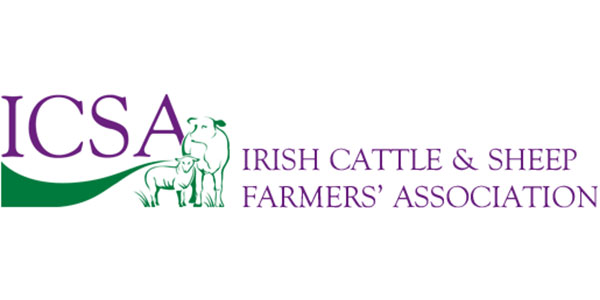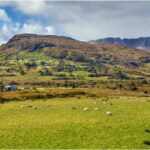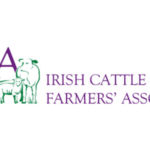29 NOVEMBER 2017
–ENHANCED ROLE FOR MEMBER STATES HAS POSITIVES BUT ALSO RISKS
ICSA president Patrick Kent has welcomed the communication from the Commission on the future CAP saying it represented “an ambitious vision of the role of the Common Agricultural Policy while recognising that fair income for farmers and generational renewal had to be at the heart of it.”
However, Mr Kent said that the communication was under the shadow of uncertainty around the budget for the CAP post 2020. “Unless there is more CAP funding, it is pointless being more ambitious.”
Regarding plans to give member states more flexibility around the design of individual CAP programmes, Mr Kent said that while there were potential attractions to this strategy he would be worried that some member states would go over the top in terms of regulations and implementation in a way that would disadvantage their farmers compared to other member states’ farmers. “ICSA would also be worried that the drafting of individual member state CAP programmes could get bogged down in endless tic-taccing between the Department and Commission, leading to delayed payments and potentially unforeseen penalties afterwards in EU audits.”
“However, on the upside this might be the opportunity to solve previously intractable problems like land eligibility payments on the basis that the EU should not be dictating whether a bit of farm roadway should be eligible or not. Even more significant might be the possibility to devise a better scheme for suckler or sheep farmers but of course, the downside to that might be that France, for example, might outdo us leaving their suckler or sheep farmers way more competitive. This could have unforeseen consequences in terms of who ends up exporting weanlings to Italy or Turkey.”
Mr Kent welcomed the fact that capping payments was on the agenda and expressed the hope that a realistic cap would be in place across Europe with a view to ensuring that large scale operations, including factory controlled or owned feedlots could not continue to get six figure sums from the CAP. “It is unacceptable that farmers get tarnished and the reputation of the CAP undermined because of a tiny minority of cases getting huge payments. Instead, we need to deliver better payments to professional, family sized farms and in this regard, the reference to units in the 5-250 Ha bracket is welcome.”
Mr Kent emphasised that there needs to be greater focus on making sure that all CAP schemes were efficient at delivering money to farmers. “The current RDP scheme is too complex with schemes which leak a lot of funds to advisors and professionals, while delivering small sums to farmers who are meant to be the beneficiaries. This has to change.”
“On generational renewal, we need to recognise that this is a two way process and we should be thinking of a retirement scheme to complement better supports for young farmers.
ICSA also welcomes mention of the bio-economy in the communication. However, the ability of farmers to produce renewable energy needs to be crystallised in EU and national policies on biofuels, solar energy and anaerobic digestion.”
Mr Kent said that the focus on risk management and income stabilisation tools could not be seen as a substitute for proper incomes. “We are open to persuasion but there is a concern that complex financial instruments could result in leakage of funds out of CAP into the insurance sector. Moreover, there is a worry that income stabilisation could lead to a perverse incentive to cut prices even more by processors/retailers in order to allow the income stabilisation tool to kick in.”
Concluding, Mr Kent said: “The eight key goals for the new CAP is ambitious and this is fine in principle; but we need to have reality in how much we ask farmers to do and we need to ensure that better farm incomes are the most important measure of sustainability. Without better farm incomes, we don’t have generational renewal, we don’t have investment in better technology and we can’t deliver on climate change objectives. Income must be central to any CAP strategy and in this regard, better regulation of the Food Chain involving auditing of margins at processing and retailing level will be essential to ensuring that CAP expenditure is not wasted.”
ENDS





